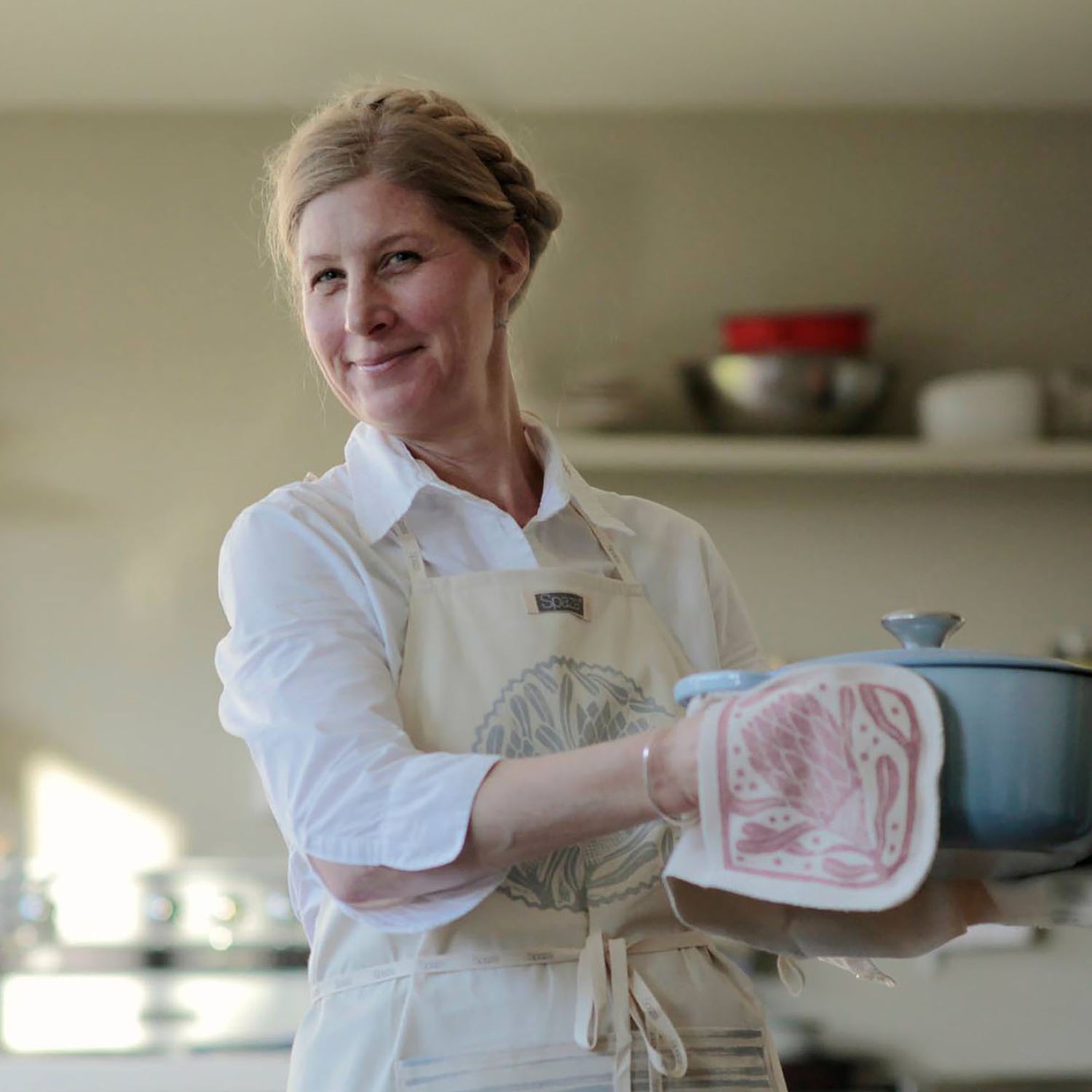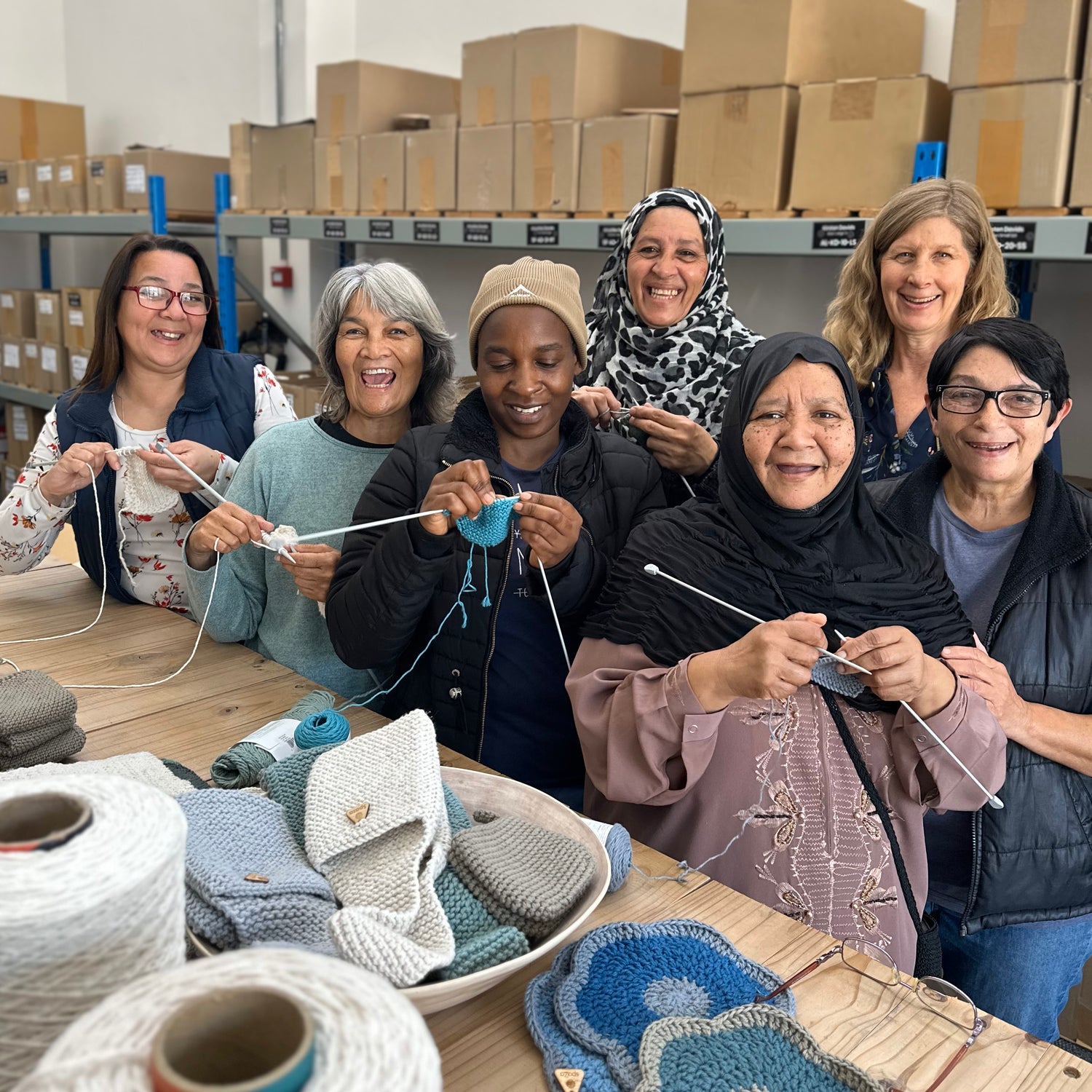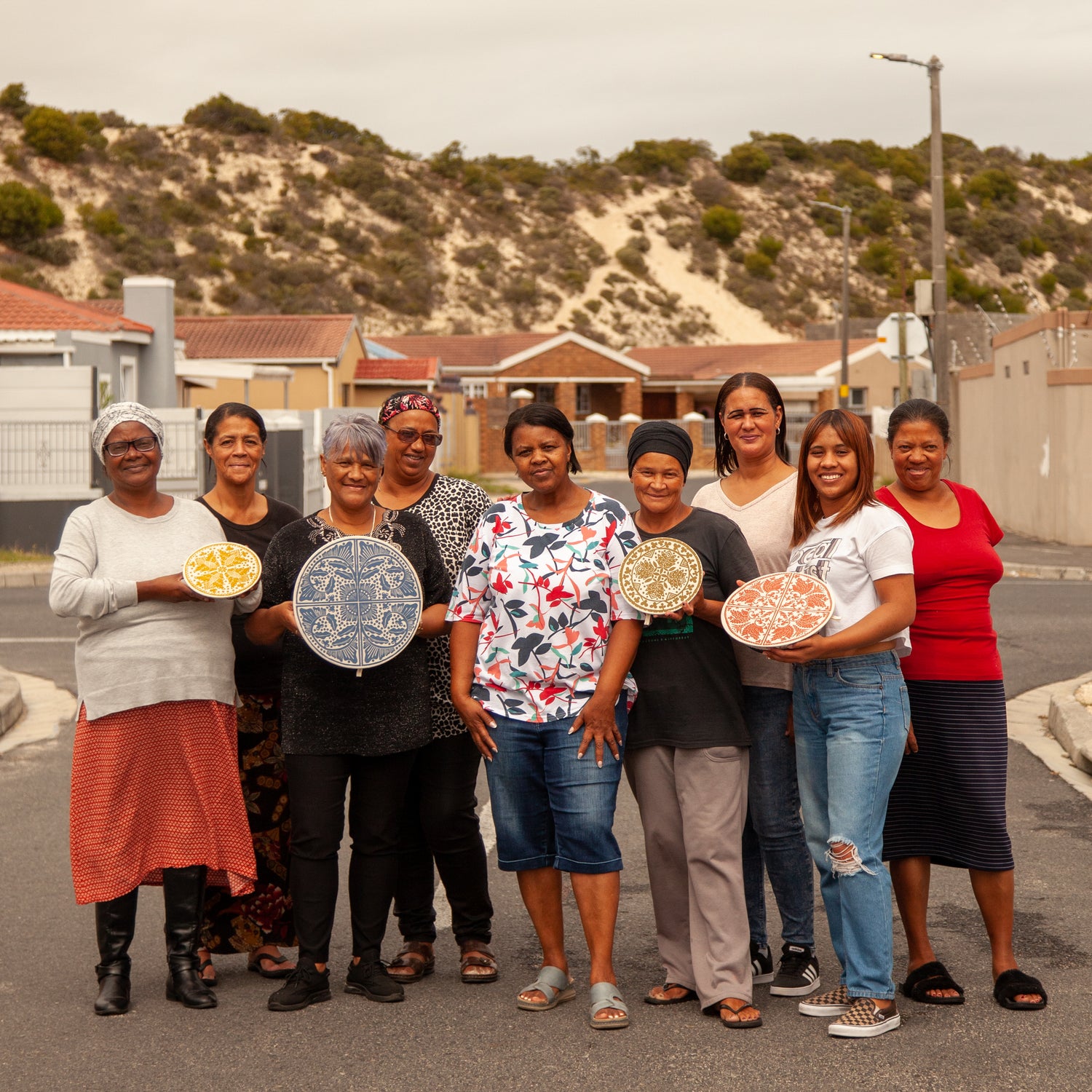Our Story
At SpaZa, we design original, well-crafted household essentials that are kind to the environment and support the upliftment of people.

It All Started With A Lappie
Julia Schaffer’s inventive functional products are inspired by everyday tasks, her love of cooking and entertaining, and her connection to people and the planet.
What started as a desire for a good kitchen cloth — like the ones her grandmother used to make — grew into SpaZa Store: a proudly South African brand creating practical, beautiful household items that reduce waste and support dignified work.
Julia’s products are now found in homes around the world — used, loved, and often gifted.
There is more to this kitchen story. Read our blog: It all Started with a Lappie

Community Based Production
Our products are made by women working in their homes and home-based workshops on the Cape Flats. From the beginning, our production has been designed to support home-based employment — offering flexibility, especially for caregivers, and creating opportunities within communities. While our textiles are now screen-printed, the designs still originate from Julia’s original hand-carved stamps.

How We Shine
Care, Creativity, and Impact shine through everything we do.
We recognised these qualities early on, and each time we revisit them, we’re grounded in the knowledge that they still sparkle.
We’re also proud members of the Fair Trade Federation and align ourselves with their nine principles — which echo our mission for a beautiful, happy life for all.
